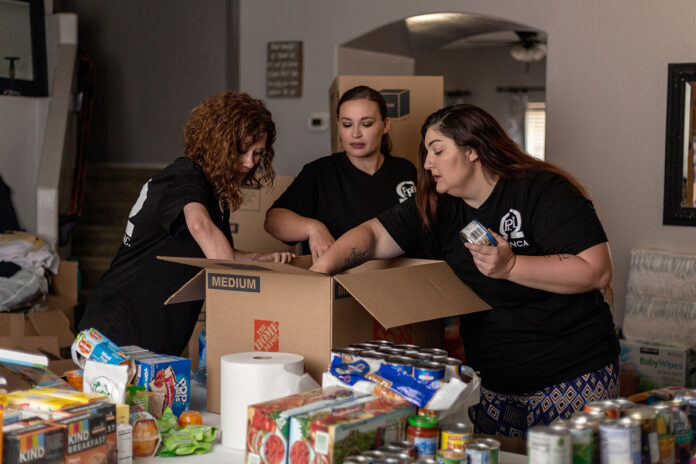
On Friday morning, in a small town in Navajo Nation near the Arizona-Utah border, a Maricopa woman was putting truckloads of food and supplies in the hands of people in great need.
Bianca Bejarano-Soucie made the 330-mile trip north on Thursday with others to deliver boxes filled with donated rice and beans, canned meats, potatoes, coffee and cases of spring water. Other supplies included soap, toothpaste, toilet paper and other toiletries.
Bejarano-Soucie, 32, and her business partner, Molly Porter, 31, started a donation drive that collected so many donations, their convoy to Monument Valley comprised an F-150 pickup truck with a 10-foot-long trailer, a Chevy Suburban, a rented 16-foot-long truck and a 26-foot refrigeration truck rented to help accommodate an abundance of pre-packaged food donated by Jim Shoaf of Maricopa Pantry.
Accompanied on the charitable mission by their husbands, Jay Soucie and Mike Porter, they distributed the donated items at a Welcome Center with the help of local fire and EMS departments.
Most of the generosity came from people in Maricopa. Some cash donations came in from as far away as San Francisco, Texas and Kentucky.
Porter and Bejarano-Soucie founded a local company, Pliris Pro, a merchant services broker focused on small businesses, in November. Like Bejarano-Soucie, Porter works from her home, in Florence. A third employee, Sarah Young, works from Chandler. The drive was a group effort.
“If I was working anywhere else, I don’t know that this donation drive would be possible, to be honest,” Bejarano-Soucie admitted. “Many companies don’t want their employees anywhere near Navajo Nation right now because of the risk of contracting COVID-19, but to Molly, Sarah and I, this is important.”
It was Porter who told Bejarano-Soucie about the plight of 350-some families in Olijato-Monument Valley, a region hard-hit by the coronavirus pandemic and where food, supplies and personal protective equipment are reaching bigger towns but not many smaller communities and their elderly residents.
Porter’s grandmother, who lives and works with women in the region, told her about the difficulty in buying supplies and then finding empty shelves when she drove more than 30 minutes to a store in Tuba City.
“Molly wanted to do something to help,” Bejarano-Soucie said earlier this week, “so we had a conversation and that’s how the drive started …. I started sharing on local Facebook pages hoping to get a truckload or two of donations to take to the people of Monument Valley, but the response we received was overwhelming.”
Within 24 hours of her initial June 2 post, Maricopa responded, filling the front room of her Senita home with donations.
“People started private messaging me on Facebook asking for my address to drop off donations and people were sharing my post to other pages,” Bejarano-Soucie said. “I realized very quickly how many people in Maricopa wanted to help the people in Monument Valley, so I started posting regular updates on items we still needed.”
And the donations continued to pour in.
“Yes, this is bigger than Molly and I ever imagined it would be,” she admitted. “It has actually brought us both to tears to see how many people are donating to help other people in need who really, really need it.”
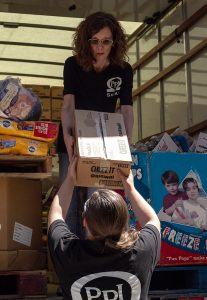
‘IT BREAKS MY HEART’
The people of Monument Valley have it incredibly tough right now. Navajo Nation was struck hard by the virus, and cases are even worse than reported, Bejarano-Soucie said. A state of emergency was declared in mid-March and a series of stay at home orders and curfews followed to limit the community spread of the virus. People continued to get sick.
According to the Navajo Department of Health, 6,150 positive cases and 285 deaths have been reported. Navajo Nation, the largest tribe in the United States with about 300,000 members, sits in parts of northeastern Arizona, southeastern Utah and northwestern New Mexico.
The median household income is about $21,000 in Olijato/Monument Valley, where more than 75% of the population is below the poverty line, according to the Census Bureau’s American Community Survey.
Many families in live in homes without running water, electricity and refrigeration, and don’t have access to transportation to travel and buy supplies. Family members who live outside are having a hard time getting supplies to them. There is little assistance available there compared to the larger towns of Kayenta and Tuba City.
“I met a couple while collecting donations, Laurissa Bowsle and Ricardo Chi, who are originally from Monument Valley, and they were telling me just how hard it is for their family members up there,” Bejarano-Soucie said. “Many of them are still working but cannot leave the reservation to get supplies. If they do, they have to self-quarantine for 14 days without pay, and many of these people cannot afford to go without pay, so they are solely relying on what is being provided by FEMA and other organizations that are bringing in supplies to Kayenta.”
But those supplies are not making it to Monument Valley, despite media coverage of the National Guard landing two helicopters with supplies in other parts of Navajo Nation.
“It breaks my heart that these people are being put in a position where they have to risk going without food and toilet paper or go without pay if they decide to leave the reservation for supplies,” she said. “It’s not a position I can imagine being in.”
MARICOPA IS DIFFERENT
For Molly Porter, the desire to help is personal.
Her family has served as missionaries in Monument Valley since the early 1970s.
“When I was a little girl I lived on the mission with my family and we just helped the community,” she said. “Pretty much everyone was employed by the hospital there, so when it closed in ’96, we left.”
Her grandparents remained and her grandmother still lives there after Porter’s grandfather died in 2007. With the tribe’s blessing, he was interred in their burial grounds.
“I’ve been in communication with many people there….” Porter said. “I was in tears Friday night as an EMT, that my mom trained and certified, described how almost every call she goes on now is COVID-related. How people that I have known literally my entire life have contracted this virus and how they are burying people on a weekly basis. People I know. People I love. People that helped shape me into the woman that I am today. And to know that…. I’ve got so much to say. So much has to be said. This community does not have a voice.”
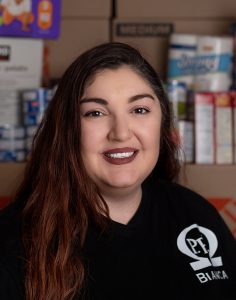
Porter said she was motivated in a different way, too, when some people discouraged her at the start of the project. Will anybody care about people up in Monument Valley, they asked her. She persevered, with she and Bejarano-Soucie spending dozens and dozens of hours on the effort since it was launched June 2.
“This honestly has been my call to serve from God,” Porter said. “This is something that was put on my heart and the desire and the burning passion to keep going and keep going.”
“We’re going to make this delivery and that’s wonderful,” she said, “and we’re going to help a lot of families and that’s just wonderful, but what happens when those supplies run out?”
Despite that concern, Bejarano-Soucie and Porter are encouraged by and thankful for the tremendous outpouring of community support.
“Molly and I … have been incredibly touched by the love, support, and generosity of Maricopa,” Bejarano-Soucie said. “We have been promoting the drive to surrounding cities and Maricopa by far has been the most supportive. It really says something about how special this community is. The people in Maricopa love to help others.”
“People helping people is what makes Maricopa different than every other city in the Phoenix area,” she added.
“I’m blown away. I mean it’s just miraculous,” Porter said of the drive’s success, “… especially in a nation that is so divided right now, to see the unity in all of these different communities. I mean, Maricopa has been unbelievable.
“God bless you.”
If you would like to make a donation, the Navajo Nation COVID-19 Fund on GoFundMe is helping its members during the pandemic. The Navajo Nation is accepting monetary and non-monetary donations to address immediate medical and community needs.


![Alleged car thief released without charges Phoenix police stop a stolen vehicle on April 20, 2024. [Facebook]](https://www.inmaricopa.com/wp-content/uploads/2024/04/IMG_5040-218x150.jpg)
![Locals find zen with Earth Day drum circle Lizz Fiedorczyk instructs a drum circle at Maricopa Community Center April 22, 2024. [Brian Petersheim Jr.]](https://www.inmaricopa.com/wp-content/uploads/2024/04/PJ_3922-Enhanced-NR-218x150.jpg)

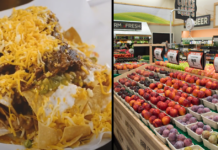

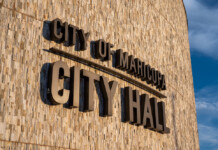
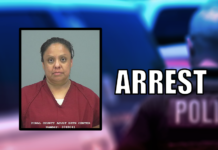



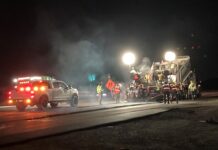

![Alleged car thief released without charges Phoenix police stop a stolen vehicle on April 20, 2024. [Facebook]](https://www.inmaricopa.com/wp-content/uploads/2024/04/IMG_5040-100x70.jpg)
![Locals find zen with Earth Day drum circle Lizz Fiedorczyk instructs a drum circle at Maricopa Community Center April 22, 2024. [Brian Petersheim Jr.]](https://www.inmaricopa.com/wp-content/uploads/2024/04/PJ_3922-Enhanced-NR-100x70.jpg)
